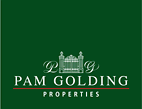MENTION the words “Piano Factory” when discussing the sprawling Bain Street complex with Wellington’s more senior citizens, and they will inform you with some indignation, that what you are referring to is the old Hugo Jam Factory.
The original Dietmann Piano Factory was in fact situated at number 13 Berg Street.
The story of what was – in its heyday - the largest piano manufacturer in the Southern Hemisphere (and seventh largest in the world) began when a young German named P Dietmann arrived in South Africa, in 1903.
A skilled artisan, Dietmann was initially hired as head of the Piano Department of R Müller, a Cape Town store specialising in musical instruments.
Many years later, Dietmann settled in the village of Porterville, where he earned his living as a piano tuner, until, lured by its schools and colleges, he moved to Wellington.
Official sources claim that this was in 1945 (after World War Two), but early documents prove that Dietmann was already operating in Wellington in 1926.
Having purchased the property in Berg Street, he opened a small backyard workshop to service and restore pianos, soon establishing an excellent reputation for quality workmanship.
Dietmann however, privately nurtured a much bigger dream. Coming from a country unrivalled in the art of piano-making, Dietmann’s greatest wish was to be able to build his own.
The business flourished, and, by the time his son PH Dietmann joined the company, it had become the largest of its kind in the country.
In 1951, Dietmann senior died, and PH decided to make his father’s dream a reality, attempting to source components and trained craftsmen from abroad, so as to manufacture pianos locally.
After an extensive search, he located an East German family, who had once been reputable piano builders. Equipped with machinery, tools and generations of expertise, the Schindhelms relocated to Wellington, where Schindhelm senior was appointed workshop head.
Within a short time - much to the delight of PH - he was able to assemble, from imported parts, the very first piano built on South African soil!
Once Dietmann had secured reliable South African contractors to supply parts, the piano manufacturing business began, with the workshop expanding “like a swallow adding on to his nest”, a local builder recalls.
When import restrictions were introduced to South Africa, R Müller and Morkel’s (then the country’s biggest musical instrument retailers) became major purchasers of Dietmann pianos, and production was stepped up to 300 instruments per year.
Dietmann and Schindhelm pianos became sought after commodities countrywide, and the company rapidly expanded.
Such was the quality of their product that Ibach of Germany (the world’s oldest piano factory, established 1794) approached them with a view to a merger.
Boosted by extra capital, and the imported know-how of Rolf Ibach junior and senior technician/factory manager Lothar Schell, PH Dietmann Pianos relocated to 25 Bain Street, occupying part – and later most - of the Hugo Jam Factory (subsequently owned by Langeberg Foods).
The Dietmanns, however, retained their Berg Street home, with the workshop being converted into flats.
In the late 1960’s, Otto Bach Pianos of Johannesburg (a subsidiary of the Morkel Group), became part of Dietmann’s and a giant new company, Piano Manufacturers of South Africa (PMSA), was born.
Production increased to 3800 pianos annually (14 per day) and in 1971, PMSA became the first South African piano maker to capture the European market.
In the same year, with the lifting of local hire purchase restrictions, export orders flooded in.
Demand began to exceed the factory’s output, and PMSA installed more sophisticated assembly-line technology to cope with batch production, which rose to 4 500 annually.
The company became a subsidiary of R Müller Ltd, with PH Dietmann as MD (Johannesburg) of the same company his late father had joined 67 years before.
By 1976, PMSA was producing over 5000 pianos a year, (at a rate of 23 daily), and exporting to 20 countries, worldwide.
Over the next few years, however, demand declined (perhaps due to the arrival of a new status symbol - television).
The long-established Müller’s closed their stores, and PH returned to Wellington, retiring in 1979.
New management attempted to revive the business, but to no avail.
By 1983, production was reduced to eight instruments per day, and finally, in 1989 (despite Lothar Schell’s attempts to purchase the business), the last piano rolled off the production line.
Now, the lovely Dietmann home (and former workshop) in Berg Street is on the market.
Owners Mike and Joan Laver, who purchased it from the Pietersen family in 1992, are moving to George.
“We’re not getting any younger, and it’s simply become too big for us,” says Joan regretfully.
The rambling five-bedroomed Victorian house (with wooden floors and pressed ceilings) boasts an enormous lounge with a handsome bar, a dining room, small sitting room, huge country-style kitchen (with Aga stove), a kitchenette, three bathrooms, three storerooms and a double garage.
The lounge opens onto a beautiful, established garden (with a large braai and entertainment area), which was, for many years, a favoured venue for wedding photographs.
Outside are four spacious, separate, twobedroomed flats, with garages.
Lesley Swart of Sinclair Properties is upbeat about the property.
“It’s a delightful, character-filled place, with tremendous potential. The number of rooms, layout and central location are ideal for an upmarket, boutique hotel – and there’s a definite gap in the market here.
“What’s more, being the original ‘home’ of Dietmann Pianos, it’s a wonderful part of Wellington’s history!”
Lesley can be contacted on 073-182-8556


